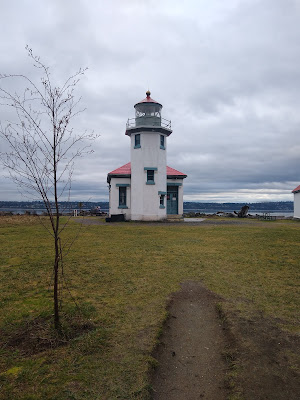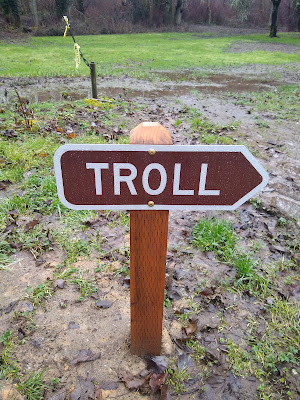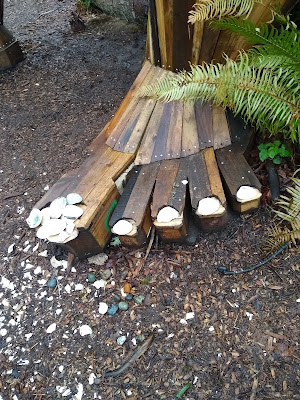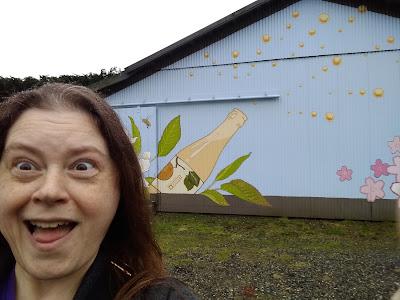(Originally written in response to a Marxist literary theory class I took in college, circa August 2004. No, it was not my favorite class. Yes, I was verily bugged about it. This is more or less a snapshot of my thoughts at the time, some of which have since changed -- which is only to be expected after accumulating another seventeen years of life experiences.)
Before making less than complimentary remarks about a dead man, I should in all fairness disclose some information
about my background, natural bias, and education. I am not an expert on Marxism, nor do I claim to be -- just a student of human nature and
somewhat capable of reading between the lines.
 |
Hey kids! It's your ol' buddy Karl!
|
I will freely admit that I am biased against Marxism. Even before I
knew anything about what Karl Marx had written, I wasn't a big fan.
Maybe it's because I've been able to witness applied Marxism in my
lifetime -- the shortages and shoddy quality, the oppression, the constant
fear. And that's the best-case scenario. (If atheists can point to the
Crusades and the Inquisition as an indication that Christianity is
rotten, I can certainly point to Stalin, Mao, Pol Pot and Hitler as
indications that communism ain't all it's cracked up to be. As Eric
Raymond puts it, "if the road to a Christian hell is paved with good
individual intentions, the road to totalitarian hell is paved with
communitarian idealism." But I digress.)
I should also admit that my current understanding of Marxist philosophy, while more comprehensive than it once was, is only at a
pop-culture level. I have not read all of Das Kapital or The Communist Manifesto in English, much less in the
original German, and I doubt I will ever exercise the patience to do so. However, I have spent the better part
of the summer studying Marxist theory as applied to literature and have also checked my notes carefully against the Youth for International
Socialism page, so I believe my understanding of Marxist philosophy is about as accurate as any garden variety, well-read non-Marxist is likely
to have.
With all that disclosed, here's what I know about Marxism, courtesy of my still-incomplete education:
Marxism is an economic philosophy with a twist. Were it not for that
twist, Marx would be studied only by pointy-headed economics
professors. You see, Marx wrote that everything is based on
economics -- that all human social activities can be broken down to issues
of finance. Money, according to Marx, is the base from which all other
social structures -- religion, morality, education, politics, law,
etc. -- eventually grow. All of these social structures, called
"superstructures," are designed to reinforce notions of private property
and of capital. This doctrine of the universality of Marxism is one
reason why Marxist thought has invaded nearly every organization and
soft-science discipline: Marxist literary theory, Marxist philosophy,
Marxist psychology, even the ultimate oxymoron of Marxist Christianity.
The Marxist view of history is one of inevitable economic change.
According to Marx, all societies go through four stages: feudalism, in
which the peasants labor for the luxuries of the wealthy; capitalism, in
which the working class labors for the financial gain of the middle
class; socialism, in which the masses revolt and create a dictatorship
of the working class; and pure communism or "workers' paradise," in
which private property is abolished and all humankind works together for
the common good. Marx stressed that all these stages led inexorably to
the workers' paradise; it was, for lack of a better term, fated to be
so.
Marx also claimed that in post-Industrial Revolution capitalist
societies, the bourgeoisie (loosely, the middle class) get and keep
their money by continually exploiting and oppressing the proletariat
(the blue-collar working class). The only way to change this state of
affairs, Marx claimed, was for the proletariat to gain control through
violent revolution. There was no point in trying to change social
superstructures, since they were all part of the capitalist base -- instead
the proletariat must rise up and take control of the means of
production, freeing themselves from capitalist slavery in the process.
Although Marx claimed his view of history was inevitable, he also
owned it was quite possible that economic change could be indefinitely
delayed by societal forces pushing hard for the status quo. Thus, it
would be necessary for the proletariat to rise up in revolution
immediately, so that workers' paradise could be achieved in their
lifetimes. He also claimed that it would be impossible for revolution
to take place in isolation -- global industry would require a global
revolution, until the entire world was one huge workers' paradise. (Cue
John Lennon's "Imagine" and fire up the patchouli incense.)
So is everyone asleep now? (Man, economics really is a dismal
science. Spending money is fun, but talking about it is always boring
for some reason.)
As I first studied Marxist thought, my initial response was one of
incredulity. "From each according to his ability, to each according to
his need?" Sounded nice, but would it really work? From what little
I'd seen of human nature, I'd determined that people who have no
financial motivation or inner drive to work usually don't work.
Somehow I didn't think "the greater good" would provide sufficient
impetus to keep the world running smoothly for long. Studying Marx's
socialist stage of history, I wondered how the proletariat dictatorship
would determine how people were to be fairly rewarded for their work,
how they would decide to price items, what would be manufactured and who
would get them in what quantities. That would be an extraordinary
amount of work to decide. And when Marx claimed that the proletariat
dictatorship would eventually voluntarily disband, I snorted out loud.
Since when have human beings ever voluntarily relinquished power?
In fact, I began to think Marx was an incredibly stupid man. Here I
was, a mere humanities major, and even I knew that money isn't at the
core of human social activities. In fact, money is only a placeholder
for one of the primary motivators of human activity -- power. If Marx
didn't understand that much, he wasn't very intelligent; certainly he
knew almost nothing about human nature.
But as I've continued to consider, I think I could make a case for
Karl Marx being quite cunning and a careful student of human nature.
And yes, I now believe he was well aware that many human activities can
be broken down to a desire for power. He purposefully didn't write
about power as a motivator, though, because he didn't want to draw
attention to that fact. Beneath the veneer of overt Marxist thought
there lies a deep shadow -- and concealed in that shadow, I have come to
believe, is the true purpose of Marxism.
Why did Marx write what he did? After all, he came from a petty
bourgeois family -- the very class he claimed to despise. He did not seem
to be averse to money, though he clearly did not understand how to keep
it -- he blazed through two inheritances in his lifetime, continually
borrowed from friends and admirers, and was notorious for being unable
to balance his own checkbook. Perhaps this was where his obsession with
capital first arose.
In his life, Marx must have observed large numbers of what he called
"the proletariat" -- what I would call the uneducated, working poor,
laboring under inhumane conditions for little pay. He must have
realized how desperate these people were, how much they yearned for a
better way of life, and how there were no rules or laws in place to help
them attain that life. He must have noticed, too, how many of them
there were. At some point he must have realized what a powerful latent
force was contained in the masses, especially if they were united and
working toward a single goal.
And so, I believe, he wrote that goal for them. It was a simple
idea, one that even the uneducated masses could grasp, and it could be
popularized easily without significantly watering down the message. It
told them that they were worse than slaves under capitalism, and that
religion was merely a drug to keep them in their places. It claimed
that money was the problem, a problem that could only be solved through
violent upheaval. It promised them that after the revolution, they would
have better living conditions and a modicum of dignity. It whispered
to them that they would run the world as they saw fit. It told
them that all they had to lose was their chains. In other words, it
told them exactly what they wanted to hear -- that without any need for
industry, education or piety, the poor would inherit the earth. And the
people ate it up with a spoon.
Marx wrote with the full intent of having his ideas put into action.
But, I believe, he was not wholly honest about his motivations. He
encouraged the masses to rise up and, by virtue of their greater
numbers, take over society, knowing full well that such a
mob -- uneducated, often undisciplined, and completely inexperienced in
leadership -- would quickly fall into chaos. Without the bourgeoisie to
guide them, there would be no one qualified to run the factories and
farms and other means of production. Society would grind to a halt as
the new dictatorship of the proletariat floundered in its unfamiliar
role. The workers of the world would need help. They would need
someone with an education, someone more familiar with the mechanics of
production, yet still sympathetic to their cause, someone who would come
to their aid and, with his greater knowledge and expertise, run their
brave new world for them. In other words, they would need someone just
like Karl Marx.
In my opinion, Marx wrote about money because he knew the
proletariat -- the cannon fodder who would accomplish his revolution for
him -- were obsessed with money, and he realized that promises of its
abolition would stir them to action. He wrote only indirectly about
power, if at all, because acquiring power for himself was his chief end
in inciting revolution. He wrote about changing human nature and about a
mythical workers' paradise the way one dangles a carrot in front of a
donkey; he knew full well that pure communism would never come to
pass -- but once he and those like him had gained control of the new
socialist order, they could run the people's lives any way they saw fit
for as long as they liked. What Marx was forwarding, under the veneer
of mutually beneficial communal living and labor for one's fellow man,
was an old-fashioned meritocracy where all the rules of the game were
written with the express end of awarding Marx the crown.
I believe the majority of rank-and-file Marxists understand only the
surface of Marx's theories -- they gladly swallow what he promised to
deliver, despite the fact that no practical application of Marxism has
ever delivered the so-called "inevitable" workers' paradise Marx
promised. Nor will it ever do so, regardless of how many times it is
tried, because Marx never fully stipulated the conditions under which it
would appear -- only the conditions to create the socialist order he
desired. But what about the upper-class, highly-educated people who
recognize "shadow Marxism" as I have described it in this editorial -- and
who are still ardent Marxists? These are the people whom economist
Thomas Sowell describes as "the anointed" -- those who, like Marx himself,
believe they were meant to rule over others. They are likely to espouse
socialism as a means to an end, to hold democracies in contempt
precisely because they reflect the will of the people and not of the
ruling class. These opportunists are the ones to watch like hawks.
They would love to stir up the common folk to violent revolution,
waiting with pale brows and clean hands until the deed is done and their
coronations can begin.
To quote Dr. Sowell again (he is eminently quotable): "The left
takes its vision seriously -- more seriously than it takes the rights of
other people. They want to be our shepherds. But that requires us to be
sheep." If you consider yourself to be one of Marx's proletariat class,
in the name of all that is holy, don't be a sheep. If you've read this
far and understood it, you're smart enough to get a post-secondary
education and take control of your own life. You don't have to wrest
control from others through acts of violence and thuggery, only to be
stepped on by the anointed once you've done their dirty work for them.
You don't even have to agree with everything I've stated here. But
don't let yourself be used by those who are not forthcoming about their
true motivations.
Remember: it is power, not religion, which is the true opiate of Marxist thought. And like any opiate, it is deadly addictive.
(ETA: if today's events in Washington, DC have taught me anything, it is that the opportunistic "anointed" can come from the political left OR the political right. Trump et al. seem convinced that they have the right to rule indefinitely, regardless of the people's votes, and are more than happy to rile up "the base" to achieve that end -- using violence and thuggery if they deem it necessary. HARD PASS THANKS.)




























